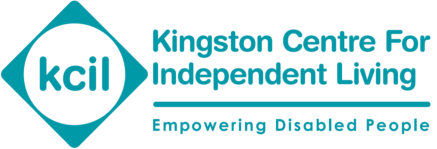Complaints Policy and Procedure
KCIL views complaints as an opportunity to learn and improve for the future, as well as a chance to put things right for the person – or KCIL – that has made the complaint.
This policy is designed to be accessible to all, regardless of age, race, religion, religious belief, sexual orientation, gender and disability. All complainants and those wishing to raise a concern will be treated courteously and sympathetically and concerns will be thoroughly and properly addressed.
Our policy is:
- To provide a fair complaints procedure which is transparent and easily understood and accessed by anyone wishing to make a complaint or raise a concern
- To publicise the existence of our complaints procedure so that people know how to contact us to make a complaint
- To make sure everyone at KCIL knows what to do if a complaint is received
- To make sure all complaints are investigated fairly and in a timely way
- To make sure that complaints are resolved wherever possible with a rapid and open response which meets the needs of the complainant or person raising the concern, and that relationships are repaired To gather information which helps management to improve what we do.
- To gather information which helps management to improve what we do.
Definition of a complaint
A complaint is any expression of dissatisfaction, whether justified or not, about any aspect of KCIL and its operations.
Who May Complain
Complaints may come from a variety of sources including: service users, members, local authority staff, donors, or other voluntary organisations or any person or organisation with an interest in KCIL.
A complaint may be made verbally, by phone, by email or in writing.
This policy does not cover complaints from staff, who should use KCIL’s Grievance procedure.
Confidentiality
All complaint information will be handled sensitively and disclosed only to those people who have a demonstrable ‘need to know’, whilst observing any data protection requirements.
Responsibility
Overall responsibility for this policy and its implementation lies with the KCIL Board of Trustees. Managers are responsible for ensuring that all staff are aware of this policy and know how and where it can be accessed. Managers must consider the relevance of any information that may require escalation through safeguarding criteria, and if so, ensure it is reported accordingly. All members of staff have a responsibility to:
Familiarise themselves with the content of this policy
Work within the standards and guidelines as specified in the policy and procedures
Understand the consequences of not complying with regulations, as non-compliance could lead to disciplinary proceedings/professional conduct issues from them personally, as well as affecting KCIL.
Receiving Complaints
All staff are responsible for ensuring that complaints and concerns are received positively and sensitively as this sets the tone and expectation of the complainant. It is accepted that not every concern requires a comprehensive complaint investigation and formal response. Staff are expected to try to resolve minor problems immediately and informally, where at all possible.
The complainant may have to bring the matter to the attention of KCIL through channels publicised for that purpose or through any other.
Verbal complaints may be made by telephone to 020 8546 9603 or in person to the Chief Executive Officer (CEO) or any Trustee.
Written complaints should be sent to KCIL at River Reach 31-35 High Street, Kingston, Surrey or by e-mail at [email protected].
Complaints made by telephone or in person must be subsequently confirmed in writing and sent to the CEO.
The person who receives either a verbal or written complaint will record:
- The complainant's name, address and telephone number.
- The relationship of the complainant to KCIL (for example: client, member).
- The details of the complaint.
- Inform the complainant that we have a complaints policy and send them a copy.
- Tell the complainant what will happen next and how long the procedure will take.
- Where appropriate, ask the complainant to send a written account by post or by email so that the complaint is clear and is recorded in the complainant’s own words.
- Where appropriate, ask the complainant to send a written account by post or by email so that the complaint is clear and is recorded in the complainant’s own words.
Safeguarding
If a complaint or concern is received that meets the criteria of a safeguarding concern, the CEO must raise an alert with the relevant Safeguard Lead (Adult or Children). If it is not clear whether a complaint should be escalated, the Safeguard Lead must be consulted.
Resolving complaints
Stage One
On receiving the complaint, the CEO records it in the complaints log. The CEO decides the best way forward to deal with the complaint in the most effective way.
In many cases, a complaint is best resolved informally by the CEO after conferring with the person responsible for the matter being complained about. The CEO may delegate the responsibility for dealing with the complaint to another employee who has no previous dealing with the matter complained of and who is senior to the employee who has dealt with the matter.
Complaints should be acknowledged by the person handling the complaint within four working days. The acknowledgement should confirm the identity of the person who is dealing with the complaint and the date when the person complaining can expect a reply. A copy of the complaints procedure should be attached to the acknowledgement.
Ideally complainants should receive a definitive reply within three weeks. If this is not possible because for example, an investigation has not been fully completed, an explanation will be sent with an indication of when a full reply will be given.
Whether or not the complaint is justified, the reply to the complainant will describe the action taken to investigate the complaint, the conclusions from the investigation and any action taken as a result of the complaint.
Under no circumstances should a member of staff be involved in investigating a complaint where they are the subject of the complaint.
Stage Two
If the complainant feels that the complaint has not been satisfactorily investigated at Stage One, they should set out the reasons why in writing and they can request that the complaint is reviewed at Board level. At this stage all papers relating to the complaint and subsequent investigation will be passed to the Chairperson of the Board of Trustees.
The request for Board level review should be acknowledged within two working days of receiving it. The acknowledgement should inform who will deal with the review and when the complainant can expect a reply.
The Chairperson of the Board of Trustees may review the facts of the case or may delegate another trustee to do so. This will involve reviewing the paperwork of the complaint and perhaps speaking with the person who dealt with the complaint at Stage One and may require speaking with the complainant.
Ideally requests for a review should receive a response within three weeks. If this is not possible, a report should be sent with an indication of when a full reply will be given.
The reply to the complainant will describe the action taken to review the investigation of the complaint and the reviewers’ conclusion. The decision taken at this stage is final.
Persistent and Unreasonable Clients
When a complaint, or person raising a concern, is unreasonable or unreasonably persistent, it may be appropriate to apply a degree of restriction to the frequency and mode of contact. This would include those who:
- Submit concerns or complaints about issues that have already been fully considered and responded to.
- Request actions that are not compatible with the process or place unreasonable demands on staff.
- Continually change the basis of the concern or complaint or introduce trivial or irrelevant information.
- Make excessive telephone calls or send excessive numbers of emails or letters.
- Repeatedly use threats or bad language.
Even when a complainant or person raising a concern is deemed to be unreasonable or unreasonably persistent, it is still necessary to address any new concerns that they have.
Monitoring and Learning from Complaints
Complaints are monitored to identify any trends which may show a need to make adjustments to current practices.

